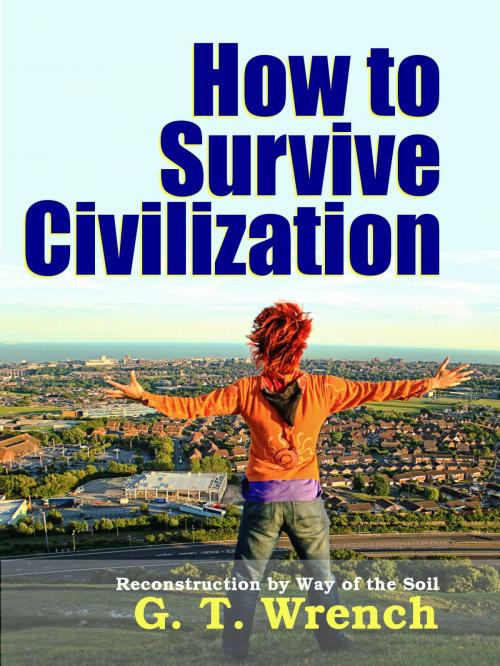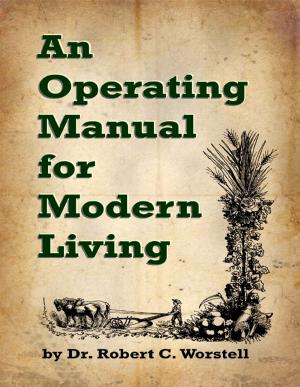How to Survive Civilization
Reconstruction by Way of The Soil
Nonfiction, Science & Nature, Nature, Plant Life, Plants, Science, Biological Sciences, Ecology, Technology, Agriculture & Animal Husbandry| Author: | Midwest Journal Press, G. T. Wrench, Dr. Robert C. Worstell | ISBN: | 9781312924598 |
| Publisher: | Midwest Journal Press | Publication: | February 28, 2015 |
| Imprint: | Language: | English |
| Author: | Midwest Journal Press, G. T. Wrench, Dr. Robert C. Worstell |
| ISBN: | 9781312924598 |
| Publisher: | Midwest Journal Press |
| Publication: | February 28, 2015 |
| Imprint: | |
| Language: | English |
They have already come to learn that this age, so distinguished for its scientific progress and its widespread knowledge has, in spite of these advantages, completely failed in its promise of peace and prosperity. Even in such vital social problems as feeding and employment, it has failed and failed signally.
Men, who have now been forced to experience in their own persons, and therefore to reflect upon these two problems, are astounded that their settlement has been so definitely brought about by war. Where peace failed, war succeeded.
Men, however, possess a marked peculiarity which distinguishes them from other forms of earthly life. It is this -- that they alone have been able to make themselves partners in the creative power of the soil.
They alone are agriculturists or farmers, whereby they assure themselves the constancy of their food, clothing and other primal necessities in place of having to trust to the gifts of chance. They alone, amidst terrene life, have acquired a quota of mastery in creation.
In this ability to take a part in the creation of their necessities, men have gained something more than a repetitive increase of their food. They have gained an understanding, dim though it may be, of a relation between themselves and the powers which rule the universe and that minute part of it on which they live.
They realize that to be partners in creation, they have to submit themselves to the unavoidable autocracy of these powers; they have to be, in their own language, creatures of the Creator, and as such, however headstrong and dominant they may be over weaker forms of life than theirs, they are, nevertheless, like them limited by the laws of their existence. Upon the basis of limitation, they are inevitably compelled to shape their individual and social lives. Should they transgress, they or their descendants are inevitably punished.
These rules and restrictions, under which mankind lives, are those of the nature of life and death.
Death itself is but a phase of life, in which the dead matter returns to the soil, where it is reformed into living matter again. There is nothing that has once taken life from the soil, that will not, by reaching the soil, again become living. The dead leaf, that we see lying on the path at our feet, is not dead in the sense of being finished. Let it lie, and, through the creative agency of the soil, its substance will again enter into a blade of grass, a flower, an insect, bird or animal and so return to the kingdom of the living.
Life and death are, therefore, not separate entities, but phases of each other. The living has to respect the dead as a part of itself, not finally dead but living, and this respect has been expressed in the religious mind of man by various forms of reverence in which the innate eternity of life in its most highly developed form, that of the human soul, is recognized.
Nothing in it is isolated, everything belongs to the pattern. From this art of fitting within the whole, certain consequences necessarily follow. Wholeness or health -- two words of a like origin and meaning -- is one consequence.
We are to-day no longer whole or healthy physically or mentally. We seem to have broken away from the great primary fact of our existence, namely, that we are first and foremost terrene animals, and, until we regain that fact and put it into practice, we cannot expect our social and individual lives to be whole. Our civilization, threatened with destruction as we know it to be, has to be healed -- another word meaning whole -- and to be healed it has to be overhauled and reconstructed in its relation to the soil that provides it with the means of existence.
(From Chapter 1)
They have already come to learn that this age, so distinguished for its scientific progress and its widespread knowledge has, in spite of these advantages, completely failed in its promise of peace and prosperity. Even in such vital social problems as feeding and employment, it has failed and failed signally.
Men, who have now been forced to experience in their own persons, and therefore to reflect upon these two problems, are astounded that their settlement has been so definitely brought about by war. Where peace failed, war succeeded.
Men, however, possess a marked peculiarity which distinguishes them from other forms of earthly life. It is this -- that they alone have been able to make themselves partners in the creative power of the soil.
They alone are agriculturists or farmers, whereby they assure themselves the constancy of their food, clothing and other primal necessities in place of having to trust to the gifts of chance. They alone, amidst terrene life, have acquired a quota of mastery in creation.
In this ability to take a part in the creation of their necessities, men have gained something more than a repetitive increase of their food. They have gained an understanding, dim though it may be, of a relation between themselves and the powers which rule the universe and that minute part of it on which they live.
They realize that to be partners in creation, they have to submit themselves to the unavoidable autocracy of these powers; they have to be, in their own language, creatures of the Creator, and as such, however headstrong and dominant they may be over weaker forms of life than theirs, they are, nevertheless, like them limited by the laws of their existence. Upon the basis of limitation, they are inevitably compelled to shape their individual and social lives. Should they transgress, they or their descendants are inevitably punished.
These rules and restrictions, under which mankind lives, are those of the nature of life and death.
Death itself is but a phase of life, in which the dead matter returns to the soil, where it is reformed into living matter again. There is nothing that has once taken life from the soil, that will not, by reaching the soil, again become living. The dead leaf, that we see lying on the path at our feet, is not dead in the sense of being finished. Let it lie, and, through the creative agency of the soil, its substance will again enter into a blade of grass, a flower, an insect, bird or animal and so return to the kingdom of the living.
Life and death are, therefore, not separate entities, but phases of each other. The living has to respect the dead as a part of itself, not finally dead but living, and this respect has been expressed in the religious mind of man by various forms of reverence in which the innate eternity of life in its most highly developed form, that of the human soul, is recognized.
Nothing in it is isolated, everything belongs to the pattern. From this art of fitting within the whole, certain consequences necessarily follow. Wholeness or health -- two words of a like origin and meaning -- is one consequence.
We are to-day no longer whole or healthy physically or mentally. We seem to have broken away from the great primary fact of our existence, namely, that we are first and foremost terrene animals, and, until we regain that fact and put it into practice, we cannot expect our social and individual lives to be whole. Our civilization, threatened with destruction as we know it to be, has to be healed -- another word meaning whole -- and to be healed it has to be overhauled and reconstructed in its relation to the soil that provides it with the means of existence.
(From Chapter 1)















